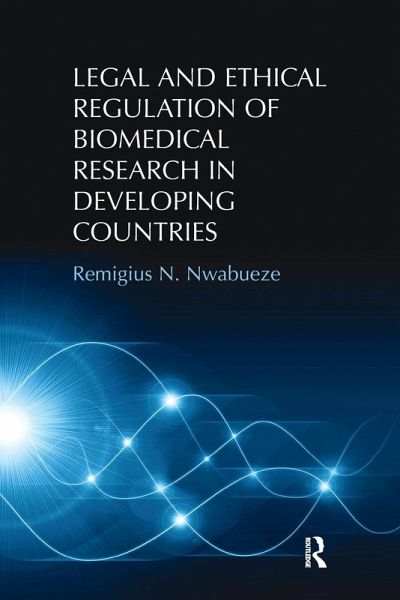
Legal and Ethical Regulation of Biomedical Research in Developing Countries
Versandkostenfrei!
Versandfertig in 6-10 Tagen
56,99 €
inkl. MwSt.
Weitere Ausgaben:

PAYBACK Punkte
28 °P sammeln!
There has been a rapid increase in the pace and scope of international collaborative research in developing countries in recent years. This study argues that whilst ethical regulation of biomedical research in Africa and other developing countries has attracted global attention, legal liability issues, such as the application of common law rules and the development of legally enforceable regulations, have been neglected. It examines some of the major research scandals in Africa and suggests a new ethical framework against which clinical trials could be conducted. The development of research gu...
There has been a rapid increase in the pace and scope of international collaborative research in developing countries in recent years. This study argues that whilst ethical regulation of biomedical research in Africa and other developing countries has attracted global attention, legal liability issues, such as the application of common law rules and the development of legally enforceable regulations, have been neglected. It examines some of the major research scandals in Africa and suggests a new ethical framework against which clinical trials could be conducted. The development of research guidelines in Uganda, Tanzania, Malawi and Nigeria are also examined as well as the role of ethics committees. Providing a detailed analysis of the law of negligence and its application to research ethics committees and their members, common law and constitutional forms of action and potential negligence claims, the book concludes by suggesting new protocols and frameworks, improved regulation and litigation. This book will be a valuable guide for students, researchers, and policy-makers with an interest in medical law and ethics, bioethics, customary law in Africa and regulation in developing countries.














